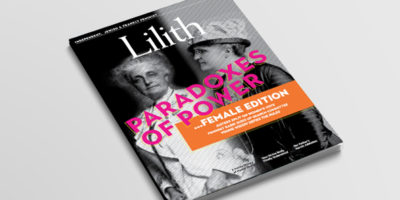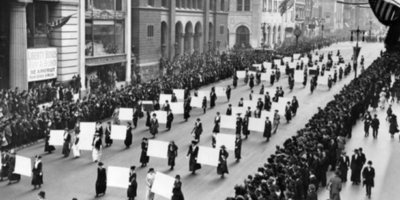A Primer on Interfaith Connections and Orthodox Feminism
Debbie Weissman is a very smart woman, a glass-ceiling-breaker in many different Jewish organizations. She has also crafted and articulated a brilliant vision of religion and cross-cultural understanding.
Weissman’s impressive achievements in liberal, feminist activism span decades and continents, from joining the civil rights movement at Barnard College in the late 1960s, to marching for women’s liberation on Fifth Avenue, to collaborating in the formation of Orthodox Jewish feminism in the 1970s and 80s, to founding the pioneering Yedidya congregation in Jerusalem, to presiding over the International Council of Christians and Jews, with many other roles in between. Her new book, Memoirs of a Hopeful Pessimist: A Life of Activism Through Dialogue (Ktav, Urim, $24.26), describes these efforts.
Still, of all her accomplishments, I note first her intelligence. This is my attempt to help ease a trauma from her teens. Weissman described meeting her paternal grandfather for the first time, a man who had left his family for the woman with whom he’d had an affair, then moved to Tel Aviv and wanted nothing to do with the children and grandchildren of his first wife. When Debbie was 17 and received a trip to Israel as a leader of the Young Judea movement, she went to meet her grandfather with great anticipation. When he saw her, he expressed only disappointment, mostly that she was not more “stylish” or attractive. Still, he was apparently a famous philanthropist at the time, and decided to give his granddaughter the “treat” of being interviewed by a local journalist. The reporter opened the article, in an Israeli women’s magazine, with the line “Debbie Weissman is not pretty,” acknowledging that “despite that,” her intelligence comes through.
Although she does not dwell on the story, this episode also contributed to Weissman’s lifelong distrust of the media, perhaps one reason why she eschews publicity in favor of getting things done. Her misgivings about journalism were not assuaged when, many years later, she organized a conference on journalism’s role in public education—and members of the media refused to attend.
Weissman was the first woman in many positions throughout her life, most recently the first Jewish woman president of the International Council of Christians and Jews. When she ran for school president in high school she was told that she should drop out of the race to allow the boy to win—since people could look up to boys, and not girls. (She didn’t drop out.) Decades later, she led her congregation, Yedidya, the first Orthodox congregation in Israel to allow women to give sermons and serve as president. In many of her roles as Jewish communal leader, she describes being the only woman at the table.
Her commitment to equality, however, is not just about gender. She was instrumental in creating programs and organizations within Orthodoxy that sought to create equality between people of different denominations, religions, ethnicities, and physical abilities. Yedidya is one of the few Orthodox synagogues where non-Jewish visitors to Israel are invited and welcomed. It is also the first Orthodox synagogue in Israel to be built with full accessibility for wheelchairs and the hearing impaired.
This memoir shows Weissman embracing the opportunity to connect with people from diverse cultures, backgrounds and lifestyles, undeterred by trends within Orthodoxy that would try to delegitimize this diversity.
Traveling the world with full halakhic Sabbath observance, she describes adventures of being Jewish in Tbilisi, Georgia; Hiroshima, Japan; Kotor, Montenegro; and more. In a world often declared unsafe for women and unkosher for religious Jews, Weissman travels freely and confidently, without hesitation, providing a whole different model of Orthodox travel, especially for women. You can be fully observant and at the same time fully open to the world. As one of the founders of religious feminism in Israel, and one of the first scholars to write about the history of Jewish women’s education, she recounts friendships with some other leading feminists—Alice Shalvi, Margalit Shilo, Avivah Zornberg, Linda Gradstein, Ruth Calderon, Penina Peli and others—as well as with feminist activists from almost every religion on the planet.
Weissman is a role model for compassionate religiousness, and this book is an important chronicle of one woman’s fealty to her own faith along with an unyielding commitment to supporting other people’s religious expression. And she names Orthodox feminism as one of her primary accomplishments.
Elana Maryles Sztokman is the author of Educating in the Divine Image: Gender Issues in Orthodox Jewish Day Schools and The Men’s Section: Orthodox Jewish Men in an Egalitarian World.



